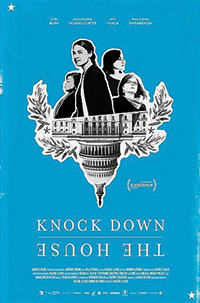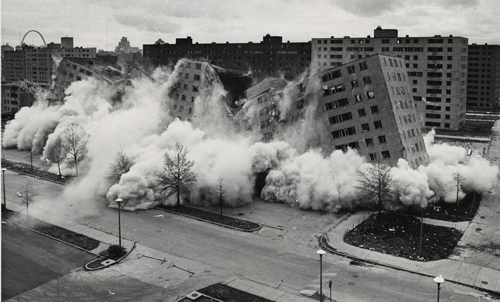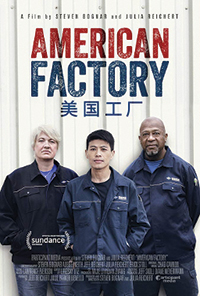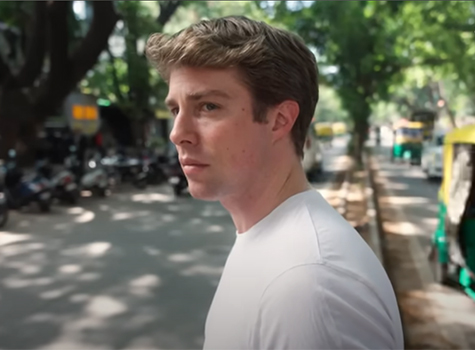The 22nd annual Full Frame Documentary Film Festival came and went too quickly as always, taking place at multiple venues in Durham April 4 – 8, 2019. In the April issue of Saathee, I had written about two films that I had been able to preview, The Watson’s Hotel (2019, thewatsonshotel.movie), a portrait of India’s oldest surviving cast iron building in the midst of Mumbai, and Giants and the Morning After (2018, facebook.com/GiantsandtheMorningAfter), about a small village in rural Sweden.
I was able to see over a dozen films – and wish that I could have seen more. Some of my favorites included some science films like Breakthrough (2019, breakthrough.movie) about 2018 Nobel Prize winner Jim Allison who has dedicated his life to fighting cancer. He found promising strategies using immunotherapy but didn’t get a lot of support initially in turning his ideas into clinical solutions. Human Nature (2019, wondercollaborative.org/human-nature-documentary-film) was remarkable in how clearly it presented its exciting science through simple explanations and excellent graphics and animations; I had taught my fourth grade daughter some basics about DNA and genetics, and that was ample background for her to understand and love this film. This film explains gene editing and CRISPR (repeated DNA sequences that can be used to find and excise target sequences) technology, including both scientific and ethical concerns.

Some well received films include, Knock Down the House (2019, knockdownthehouse.com) about women like Alexandria Ocasio-Cortez and others who ran for Congress in 2018. One of the candidates, Amy Vilela (who ran in Nevada but didn’t win a seat), was part of the film’s question-and-answer session. Hail Satan? (2019, hailsatanfilm.com) was a funny and provocative film addressing the separation of church and state through the guise of a satanic group suggesting, for example, that religious displays in government buildings should offer equal access to other faiths/approaches.
I was stunned by The Infiltrators (2019) about a group that infiltrates ICE detention facilities to help those unjustly detained. Their work is dangerous and puts themselves at personal risk in order to help others for whom the light of justice may be blocked. Sure enough, one of the infiltrators was in attendance and took questions after the film.
Decade of Fire (2018, decadeoffire.com) was another favorite of mine. The film describes a happy melting pot of neighborly Bronx living in the 1950s and 1960s. Gross neglect by landlords led to arson so that they could collect insurance and then abandon the properties. The Bronx suffered with lack of public support and ended up in a downward spiral. The film documents the seemingly decade-long 1970s fires that burned and, inspirationally, describes how residents have been taking matters in their own hands and rebuilding in spite of lack of support.
There were upsetting politics that I wish could have been covered in Decade of Fire but which had to be cut. The Carter administration at the end of the 1970s was intent on funding redevelopment for the Bronx, but the New York Mayor blocked this. Along with films like Owned, a Tale of Two Americas (2018, ownedfilm.com), which was shown at Full Frame 2018, more films need to be made to analyze varying perspectives and expectations of the social contract especially in terms of housing and orchestrating vibrant, diverse communities.
It was a treat to introduce my daughter to the groundbreaking film critiquing the pace and direction of modernity, Koyaanisqatsi (1982, koyaanisqatsi.org). It was my first time taking in the stunning film on a large screen.


Filmmakers Julia Reichert and Steven Bognar were honored at the Festival. I was thrilled to get to talk with them and enjoy a number of their films, many of which are about labor movements. There was also a film, Personal Belongings (1996), which Steve had made about his father, a fascinating portrait of a man who fought in the Hungarian Revolution before fleeing for America. The opening night film was their American Factory (2019) about a Chinese company taking over from a General Motors plant that had closed. The story of hard working and proud workers trying to navigate the mores of a very different culture was continued in the post-film discussion that included not only the filmmakers, but also one of the factory workers. I got to see Bognar and Reichert’s The Last Truck (2009), which made a nice prequel to American Factory; Union Maids (1976), a retrospective of Depression era women labor organizers; and a work-in-progress, Raises not Roses. For this current effort, Reichert and Bognar document the “9 to 5″ movement of the 1970s, when secretaries and other administrative staff organized for fair treatment and better working conditions. It was particularly interesting because, after the screening, the filmmakers asked the audience what we thought about different parts of the film and got input to help them in completing the film.
I met many other filmmakers, including Aparna Agrawal, producer of Where the Pavement Ends (2018, janegillooly.com/where-the-pavement-ends). The director, Jane Gillooly, grew up in Ferguson, MO, and thought that the adjacent towns of Ferguson, historically with no African American population, and Kinloch, which had been African-American and was physically separated by a road blockade, formed an interesting subject. The death of Michael Brown in Ferguson in 2014 made the film’s addressing of racial discrimination even more urgent.
Unfortunately, many of these films only tour the festival circuit. However, some do have or are working on distribution plans; for example, Decade of Fire will be broadcast on PBS this or next year, and Knock Down the House is scheduled to be released by Netflix on May 1, 2019.
More details at www.FullFrameFest.org.



